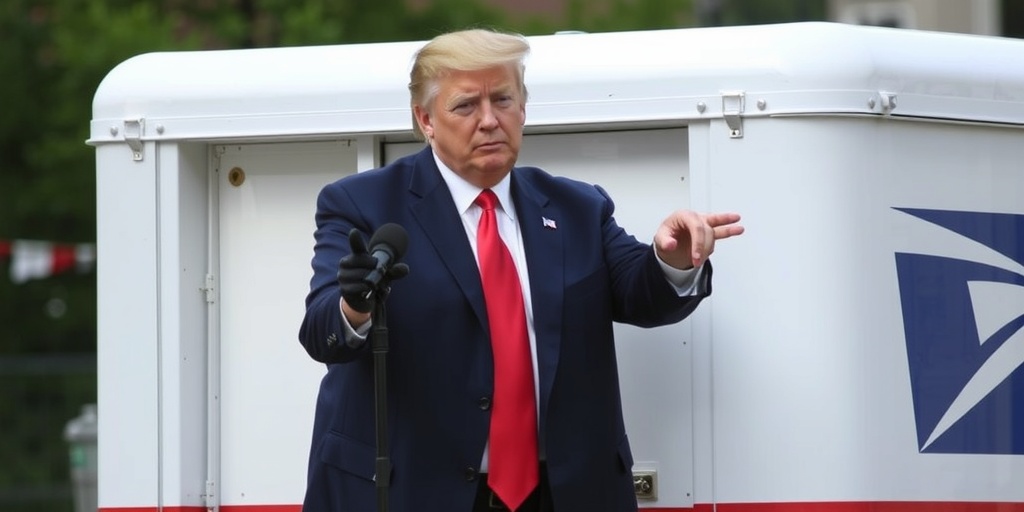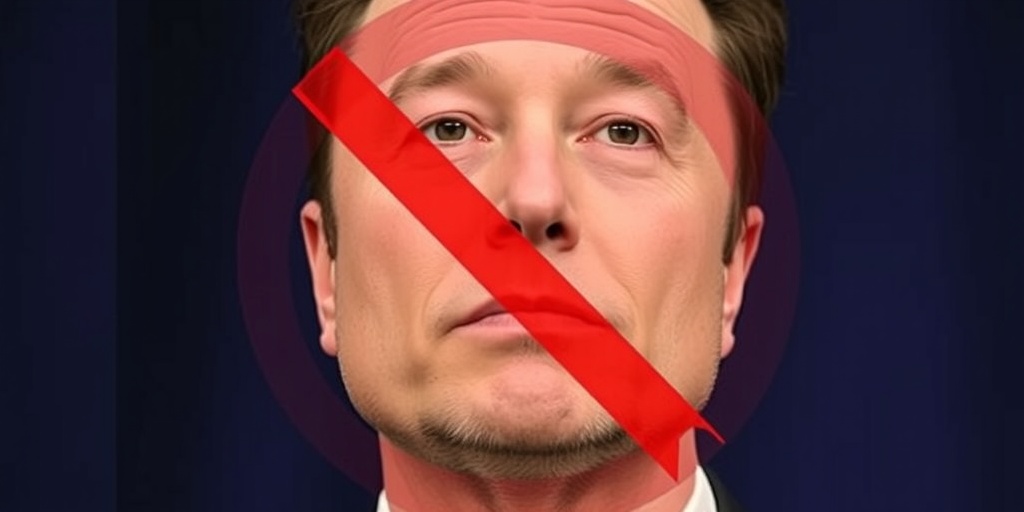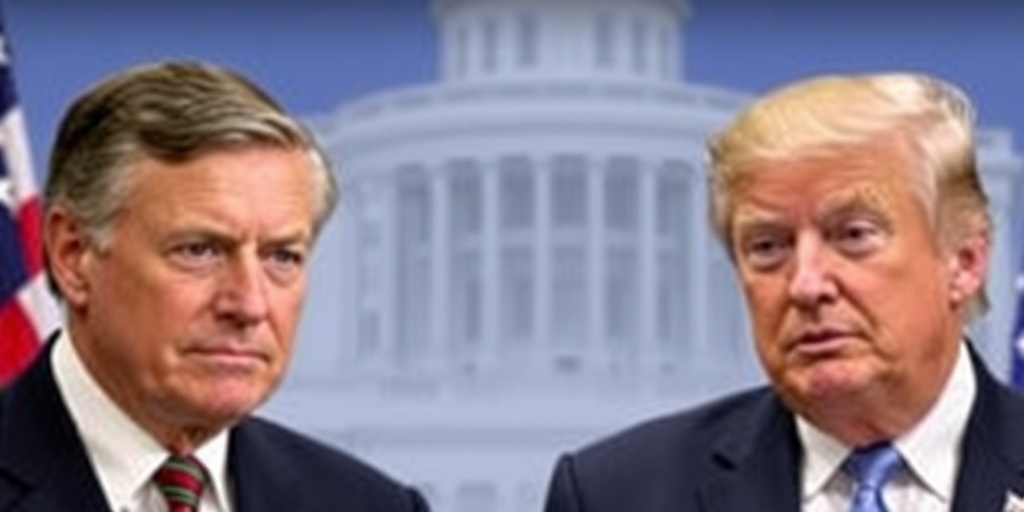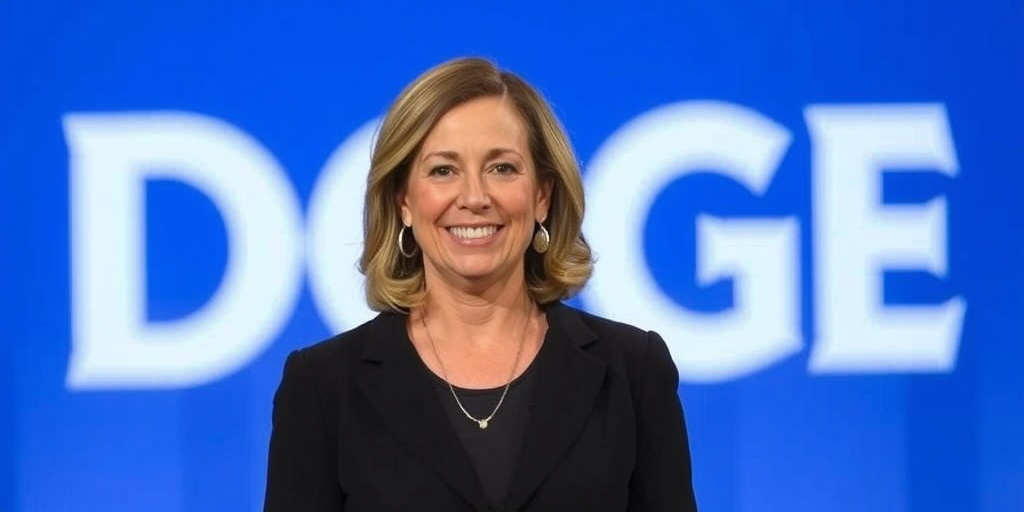Now Reading: Trump Targets Postal Service, Sparking Independence Concerns
-
01
Trump Targets Postal Service, Sparking Independence Concerns
Trump Targets Postal Service, Sparking Independence Concerns

Concerns Grow Over Trump’s Push to Restructure U.S. Postal Service Amid Financial Challenges
President Donald Trump’s recent comments regarding a potential reorganization of the U.S. Postal Service (USPS) have raised significant concerns about the agency’s capability to fulfill its mandate of reliable mail delivery across the United States. For over fifty years, the USPS has functioned as an independent agency, but Trump’s administration has ignited fears of a takeover that could undermine its operations and threaten jobs.
While White House officials have asserted that there are no immediate plans for Trump to seize control of the Postal Service, his statements have suggested an interest in a major overhaul. Over the years, Trump has criticized the USPS, and many observers believe his actions may set the stage for privatization. Trump’s previous comments about considering privatizing the service alarmed union officials, advocacy groups, and Democratic lawmakers, who warn that such a move could endanger postal jobs and raise delivery costs for consumers. Rural communities, where private delivery services may find it less profitable to operate, could be particularly hard hit by a shift away from a publicly run postal system.
Brian L. Renfroe, president of the National Association of Letter Carriers (NALC), expressed deep concern, stating, "We believe it would result in a death spiral for whatever is left," emphasizing the negative impact on rural populations reliant on the USPS.
Additionally, the prospect of Trump exerting control over the Postal Service raises red flags regarding mail-in ballots, especially in the context of national elections. During the 2020 election, when the use of mail-in voting surged due to the COVID-19 pandemic, Trump’s opponents charged him with attempting to sabotage ballot deliveries in Democratic strongholds. Millions of Americans depend on the postal service to deliver their ballots on time, and any perceived manipulation could undermine electoral integrity.
On a recent Friday, Trump mentioned the possibility of exploring a "form of a merger" to address the USPS’s persistent financial losses while assuring that it would remain the Postal Service. He highlighted that Commerce Secretary Howard Lutnick would aid in this effort, driven by a desire to create a more efficient agency that does not incur substantial financial losses. "We want to have a post office that works well and doesn’t lose massive amounts of money," Trump stated, criticizing the agency’s historical performance.
However, speculation regarding an executive order that would dismiss members of the USPS governing board and subordinate the agency to the Commerce Department has sparked further dissent. Legal experts have warned that such maneuvers may violate the Postal Reorganization Act of 1970, which established the USPS as an independent agency governed by a board of governors appointed by the president.
Anne Joseph O’Connell, an administrative law professor at Stanford University, indicated that congressional approval would be necessary for such a structural change, meaning Trump’s plans could run into legal roadblocks.
Union leaders and Democratic legislators have voiced strong opposition to Trump’s intentions, suggesting that his approach could exacerbate existing issues without providing viable solutions for improved delivery performance or long-term fiscal sustainability. House Democrats on the Oversight Committee emphasized their concerns about potential political interference and rising prices should the Postal Service come under direct control of the administration.
Despite these challenges, the USPS has faced a tumultuous financial landscape exacerbated by a decline in mail volume. The service reported a staggering loss of $9.5 billion in the 2024 fiscal year, an increase from the previous year’s $6.5 billion loss. However, recent financial reports had shown glimmers of hope, with the USPS posting a profit for the first quarter of the fiscal year.
The implications of any major changes to the USPS extend beyond financial metrics; they could also impact essential services, especially in rural areas where private-sector competitors may not be incentivized to provide service. Experts, such as James S. O’Rourke from the University of Notre Dame, have warned that proposed privatization efforts may lead to deteriorating service quality in these underserved communities.
Moreover, the delivery of mail-in ballots remains a pressing concern. Given Trump’s past criticisms of mail voting, many are apprehensive about the administration’s commitment to maintaining essential services during critical election periods.
While some Republican lawmakers have praised Trump’s ambitions for the Postal Service, viewing it as a necessary move to stabilize the agency, critics argue that significant changes should emerge from thoughtful policy revisions rather than unilateral executive actions.
As the debate continues, the future of the Postal Service hangs in the balance. With its financial struggles and mounting service delivery challenges, stakeholders from all sides are urging a collaborative approach to securing the agency’s role in American society, rather than risking its survival through drastic and potentially illegal measures.
In conclusion, while President Trump’s willingness to tackle USPS challenges garnered some support from like-minded lawmakers, many fear that his methods could sow discord rather than promote stability in an agency that is essential to millions of Americans.
Stay Informed With the Latest & Most Important News
Previous Post
Next Post
-
 01New technology breakthrough has everyone talking right now
01New technology breakthrough has everyone talking right now -
 02Unbelievable life hack everyone needs to try today
02Unbelievable life hack everyone needs to try today -
 03Fascinating discovery found buried deep beneath the ocean
03Fascinating discovery found buried deep beneath the ocean -
 04Man invents genius device that solves everyday problems
04Man invents genius device that solves everyday problems -
 05Shocking discovery that changes what we know forever
05Shocking discovery that changes what we know forever -
 06Internet goes wild over celebrity’s unexpected fashion choice
06Internet goes wild over celebrity’s unexpected fashion choice -
 07Rare animal sighting stuns scientists and wildlife lovers
07Rare animal sighting stuns scientists and wildlife lovers





















